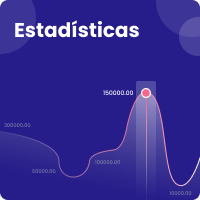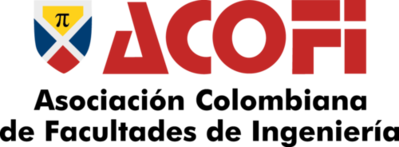MACHINE LEARNING TO PREDICT STUDENT ACADEMIC RISK IN ENGINEERING
DOI:
https://doi.org/10.26507/ponencia.1579Resumen
Identifying academic risk in an engineering program is very important since it allows to stablish policies that can be applied to prevent it and to guarantee student success. At Pontificia Universidad Javeriana in Bogotá – Colombia, we have developed some methods that can be used to predict the number of students that are in academic risk or even in dropout risk. This information can be employed to identify possible actions and interventions in our programs. We focus in the necessity to design and implement models to recognize patterns associated with academic performance and transitions of undergraduate students.
Our strategies are faced to accompany the students. Once we identify the risk, every student is evaluated by an academic adviser, who is in charge of determining the possible causes of the low performance and this way customize the support. In this sense, weaknesses are identified around CDIO competencies, for example, interpersonal competences, basic knowledge, algorithmic thinking, problem solving or personal skills. In this way, students are routed to different strategies to strengthen those abilities.
This paper starts with an introduction justifying this work. After that, a section describes the methodology to predict academic risk. Then, we present our accompaniment strategies. Some future works are also presented. In this context, this work tries to give hints about particular intervention for student in risk.
Descargas
Citas
Al-Atabi, M. (2013). Grand Challenges for Engineering and Development of CDIO Skills. Proceedings of the 9th International CDIO Conference, Cambridge, MA, USA.
Crawley, E., F. Malmqvist, J., Östlund, S., Brodeur, D., & Edström, K. (2014). Rethinking Engineering Education: The CDIO Approach, 2nd edition. New York: Springer-Verlag.
Géron, A. (2017). Hands-On Machine Learning with Scikit-Learn & TensorFlow,O’Reilly.
González, A., Barrera, D.,León, M., Curiel,M., & Prieto,L.(2018). Student Success: On The Need for A New Standard, Proceedings of the 14th International CDIO Conference, Kanazawa Institute of Technology, Kanazawa, Japan.
González, A., Patino, D., Roldán, L., Pena, J., Barrera, D. (2019). Toward Early Intervention: Model Of Academic Performance In A CDIO Curriculum, Proceedings of the 15th International CDIO Conference, Aarhus University, Denmark.
Jaramillo, C., Ordóñez, C., González, A., León, M., Curiel, M., Palacios, J., & Barrera, D. Formulación Del Programa De Prevención De La Deserción: Articulación De Acciones En Un Programa Transversal De Acompañamiento Para La Pontificia Universidad Javeriana. (2018). Congreso CLABES VIII, Ciudad de Panamá, Panamá.
Jayaprakash, Sandeep & Moody, E.W. & Lauria, Eitel & J., Regan & Baron, J.D.. (2014). Early Alert of Academically At-Risk Students: An Open Source Analytics Initiative. Journal of Learning Analytics. 1. 6-47..
Torres, L.(2012). Retención estudiantil en la educación superior: revisión de la literatura y elementos de un modelo para el contexto colombiano. Bogotá: Editorial Pontificia Universidad Javeriana.
Descargas
Publicado
Cómo citar
Evento
Sección
Licencia
Derechos de autor 2021 Asociación Colombiana de Facultades de Ingeniería - ACOFI

Esta obra está bajo una licencia internacional Creative Commons Atribución-NoComercial-SinDerivadas 4.0.
| Estadísticas de artículo | |
|---|---|
| Vistas de resúmenes | |
| Vistas de PDF | |
| Descargas de PDF | |
| Vistas de HTML | |
| Otras vistas | |








